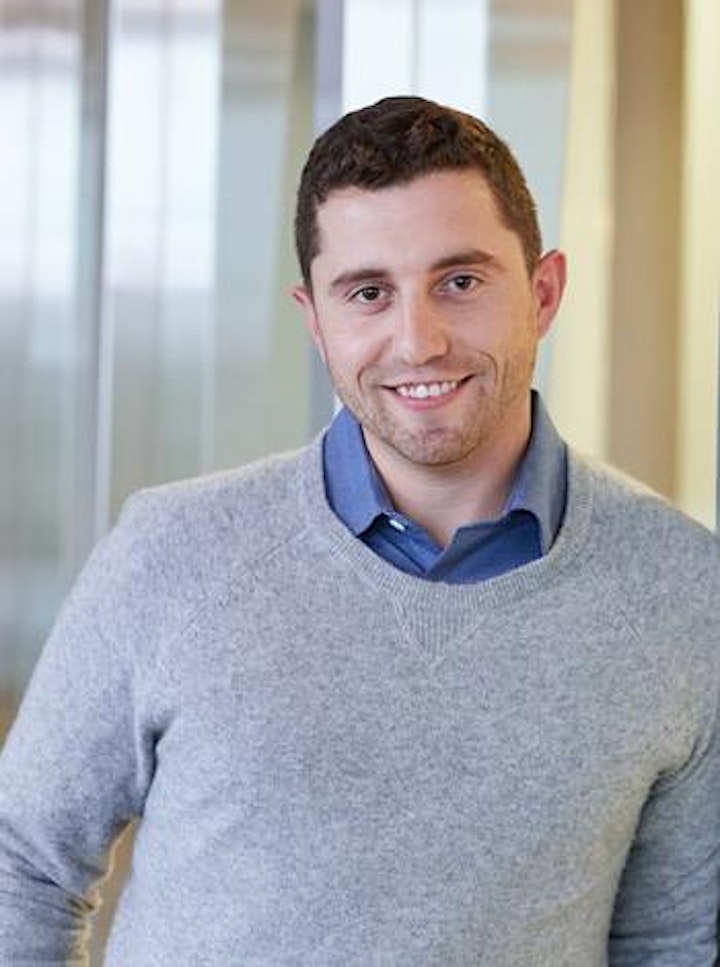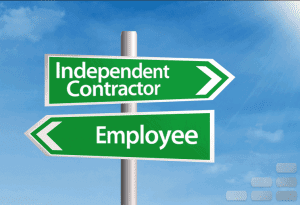This workshop on California Worker Classification Law covered the following topics:
(1) why proper worker (i.e. employee (W2) v. independent contractor (1099)) classification is important, including the penalties/liability for improperly classifying;
(2) the evolution of the operative test in CA for classifying workers and Dynamex;
(3) AB5, the numerous exemptions of the bill, and pending litigation and legislative challenges to the bill; and
(4) a brief outlook of considerations for employers moving forward.
If you did not have a chance to attend, the entire webinar can be found here: California Worker Classification Law
Presented by:
 Garett Hill
Garett Hill Garett Hill is an Associate of the Firm. His practice focuses on all stages of business litigation.
Prior to joining the firm, Garett was a certified law clerk with the Re-Entry Clinic at Loyola Law School where he successfully represented Los Angeles residents seeking to expunge or seal their prior convictions or trying to obtain or restore a license that had been negatively impacted by prior convictions. Garett completed the Corporate Law Concentration at Loyola Law School where he excelled learning within the various substantive areas of business law. Additionally, Garett worked as a legal intern in-house at AECOM, where he primarily focused on corporate governance and construction law matters. He also worked as a law clerk at Girardi & Keese where he gained invaluable exposure to high-volume litigation.
Jeffrey F. Gersh is a Partner of the Firm. Before joining Stubbs Alderton & Markiles, LLP, Jeffrey was Managing Partner of The Gersh Law Firm, Inc. for over 10 years and a partner for 25 years with a prominent litigation law firm. Jeffrey has been named a Thomson Reuters “Super Lawyer” for more than 8 years by his peers; an honor only achieved by less than 2.5% of attorneys in California.
Jeffrey successfully litigates, arbitrates, or mediates for both plaintiffs and defendants complex business and commercial matters, whether for individuals, public or private corporations, partnerships, limited liability companies and/or its members, shareholders and partners. Jeffrey successfully handles disputes regarding contract matters, trade secrets, intellectual property (trademarks, copyrights and trade dress) negligence and fraud, employment, real estate, license agreements, the apparel and garment industry, and general business matters.
Jeffrey approaches his litigation practice from a business perspective, rather than purely transactional. In addition to representing his clients in litigation and dispute resolution matters, Jeffrey handles many of their various transactional matters relating to general business, trademarks, trade dress, copyrights and other intellectual property matters, trade secret matters, and employment matters to name a few.
 Businesses operating in California need to be very careful when classifying someone as an independent contractor vs. an employee. Given the California Supreme Court’s ruling in Dynamex Operations W. v. Superior Court, 4 Cal. 5th 903 (2018) (“Dynamex”), and now the legislatures passing Assembly Bill 5 (“AB5”) which codifies Dynamex, the independent contractor in certain industries is essentially dead.
Businesses operating in California need to be very careful when classifying someone as an independent contractor vs. an employee. Given the California Supreme Court’s ruling in Dynamex Operations W. v. Superior Court, 4 Cal. 5th 903 (2018) (“Dynamex”), and now the legislatures passing Assembly Bill 5 (“AB5”) which codifies Dynamex, the independent contractor in certain industries is essentially dead.
California’s Wage Order laws, found within the California Labor Code, demonstrate the importance of proper worker classification. These laws provide minimum-wage, overtime-pay, paid time off, and various other working condition-related protections to “employees” in a given industry and impose certain tax and insurance payment obligations on an employer. A true independent contractor is not afforded these same protections. Failure to properly classify workers can carry severe consequences that include a company’s liability for unpaid wages and other benefits due (plus interest), civil penalties, criminal sanctions, attorneys’ fees, and the potential for class-action litigation. The Private Attorneys General Act (“PAGA”) also provides a cause of action for misclassified workers wherein enforcement actions are brought on behalf of the state,[1] and AB5 will allow city attorneys in California cities with populations over 750,000 to pursue injunctive relief to prevent misclassification. Compliance with the new categorization framework is thus key to avoiding these pitfalls.
In April 2018, Dynamex effectively replaced the long-standing test for categorizing independent contractors and employees with respect to claims brought under the Wage Order laws, which was set forth in S. G. Borello & Sons, Inc. v. Department of Industrial Relations, 48 Cal. 3d 341 (1989) (“Borello”). The Borello court utilized a “control-of-details” test that requires workers to demonstrate an adequate degree of control that the employer asserts or could assert over all aspects of a worker’s performance. The Borello test considers a long list of factors to determine if someone is properly classified as an independent contractor vs. an employee, including, but in no way limited to, the degree of discretion a worker has in completing tasks, the difficulty of the work performed, where the work is performed, and whether the worker provided his/her own supplies. Ultimately, the California Supreme Court recognized a need for a clearer framework that would better protect workers.
Dynamex established the “ABC test,” which starts with the presumption that all workers are employees and shifts the burden to employers when classifying someone as an independent contractor to prove each of the following three prongs: (A) that the worker is free from the control and direction of the hirer in connection with the performance of the work, both under the contract for the performance of the work and in fact; and (B) that the worker performs work that is outside the usual course of the hiring entity’s business; and (C) that the worker is customarily engaged in an independently established trade, occupation, or business of the same nature as that involved in the work performed. Prong B of the Dynamex ABC test is by far the most controversial. For example, gig-economy companies like Uber and Lyft largely classify their drivers as independent contractors. Despite Uber’s assertion that its drivers can pass the Dynamex ABC test because its usual course of business is a “technology platform for several different types of digital marketplaces,” the success of this argument if raised in court is highly questionable.
On September 10, 2019, the California Senate joined the State Assembly in approving the codification of the Dynamex ABC test via AB5. On September 18, 2019, Governor Newsom signed the bill into law; AB5 will now take effect on January 1, 2020. Notably, while Dynamex limited the application of its ABC test to claims brought under the Wage Order laws, AB5 will expand the Dynamex ABC test’s application to all claims brought under the Labor Code, including those related to workers compensation.
California’s Wage Order laws already exempt various employees from the entirety of those provisions, including, but not limited to, licensed lawyers, doctors, architects, engineers and accountants. However, AB5 builds upon these exemptions by listing professions that will be exempt from the Dynamex ABC test and subject to Borello beginning in 2020 for all claims brought under the Labor Code, without affecting those exempt professions under the Wage Order laws. Accordingly, professions exempt under both the Wage Order laws and AB5, such as those listed above, will remain exempt to Wage Order claims and subject to Borello for all other claims brought under the Labor Code. Professions not exempt under the Wage Order laws but exempt under AB5, like barbers, will be subject to Borello for all claims brought under the Labor Code, including Wage Order claims. Professions exempt under the Wage Order laws but not exempt under AB5, like teachers, will remain exempt from Wage Order law claims but subject to the Dynamex ABC test for all other claims brought under the Labor Code. Finally, professions not exempt by either the Wage Order laws or AB5, like those in the gig-economy, will be subject to the Dynamex ABC test for all claims brought under the Labor Code.
Exempted professions under AB5 include:
Notably, gig-economy company workers have not been granted an exemption and industry giants will continue to lobby the legislature until AB5 takes effect. Indeed, both Uber and Lyft, along with DoorDash, have pledged $30 million each to support a ballot measure that would exempt the industry from AB5.
Dynamex did not address whether its ABC test applies retroactively, (i.e., to claims filed after Dynamex was decided but with respect to activity that occurred prior to the decision). In May 2019, the Dynamex ABC test was briefly given retroactive effect by the Ninth Circuit in Vazquez v. Jan-Pro Franchising International, Inc., 923 F. 3d 575 (9th Cir. 2019) (“Vazquez”). However, on July 22, 2019, California businesses breathed a collective sigh of relief when the Ninth Circuit withdrew its opinion in Vazquez and sought certification on the issue by the California Supreme Court. Meanwhile, AB5 provides that it will only apply to work performed on or after January 1, 2020, with the exception for any “existing claims and actions” wherein the retroactive application of AB5 would relieve an employer from liability “to the maximum extent permitted by law” (i.e. Wage Order law claims brought by individuals in professions exempted under AB5 that were not previously exempted, such as barbers). It is unclear from AB5’s text whether this exception will only apply to claims that have already been filed, or those that may have arisen but have not yet been filed. It is also unclear what "the maximum extent permitted by law" means in this specific context.
In sum, businesses operating in California that hire independent contractors, particularly those that hire in professions not exempted by AB5, must consider the Dynamex ABC test or risk facing the consequences. In many cases, this will mean re-categorizing independent contractors as employees and providing, among other things, meal breaks, overtime-pay, and contributions to unemployment insurance. These companies should also be paying close attention to: (1) the forthcoming wave of litigation expected to both challenge and clarify aspects of AB5, such as which businesses qualify under certain exemptions; (2) whether the California Supreme Court provides any guidance regarding retroactivity; and (3) any additional developments to AB5 prior to it taking effect.
[1] On September 12, 2019, the California Supreme Court held in ZB, N.A. v. Superior Court of California, that PAGA does not allow workers who have entered agreements that subject wage-related disputes to arbitration to recover back pay and limited a company’s liability under these claims to cumulative civil penalties per violation. The ruling is a setback to those workers who have relied on PAGA to recover unpaid wages outside of forced solo arbitration, since PAGA claims belong to the state and are thus not subject to arbitration.
[2] “Professional services” include marketing, human resources, travel agent services, graphic design, grant writing, fine artistry, services provided by an agent licensed to practice before the IRS, payment processing, unlicensed photography, freelance writing, and services provided by: licensed estheticians, electrologists, manicurists, barbers and cosmetologists.
[3] “Referral agencies” are businesses that connect clients with “service providers” to provide design, photography, tutoring, event planning, minor home repair, moving, home cleaning, errands, furniture assembly, animal services, dog walking, dog grooming, web design, picture hanging, pool cleaning, or yard cleanup related services.

Prior to joining the firm, Garett was a certified law clerk with the Re-Entry Clinic at Loyola Law School where he successfully represented Los Angeles residents seeking to expunge or seal their prior convictions or trying to obtain or restore a license that had been negatively impacted by prior convictions. Garett completed the Corporate Law Concentration at Loyola Law School where he excelled learning within the various substantive areas of business law. Additionally, Garett worked as a legal intern in-house at AECOM, where he primarily focused on corporate governance and construction law matters. He also worked as a law clerk at Girardi & Keese where he gained invaluable exposure to high-volume litigation.

Jeffrey successfully litigates, arbitrates, or mediates for both plaintiffs and defendants complex business and commercial matters, whether for individuals, public or private corporations, partnerships, limited liability companies and/or its members, shareholders and partners. Jeffrey successfully handles disputes regarding contract matters, trade secrets, intellectual property (trademarks, copyrights and trade dress) negligence and fraud, employment, real estate, license agreements, the apparel and garment industry, and general business matters.
Jeffrey approaches his litigation practice from a business perspective, rather than purely transactional. In addition to representing his clients in litigation and dispute resolution matters, Jeffrey handles many of their various transactional matters relating to general business, trademarks, trade dress, copyrights and other intellectual property matters, trade secret matters, and employment matters to name a few.
Jeffrey has been directly involved in litigation and business matters for clients not only in California, but also in New York, Nevada, Texas, Arizona, London, Australia, and Estonia and other places. He litigates cases from inception through trial and in some cases appeal, directly responsible for all aspects of the prosecution, defense and resolution of his client’s complicated and sophisticated matters in both state and federal courts. As a result of his commitment to his client’s needs, he has enjoyed long-standing client relationships.
For more information about our Business Litigation Practice please contact Garett Hill at or Jeff Gersh at .